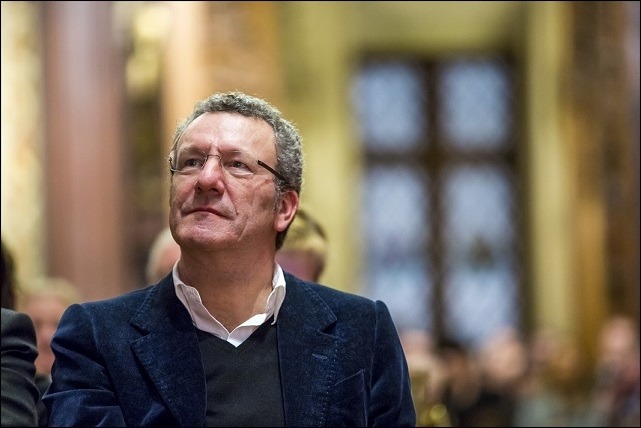Yvan Mayeur was born in Etterbeek on 24 January 1960. He grew up in one of the most popular districts of Brussels: the Marolles. Social worker by training, he was appointed Mayor of the City of Brussels after former mayor Freddy Thielemans stepped down on 16 December 2013. Q. What are the priorities and goals that you would like to achieve as the mayor of Brussels City?
A. I have a few urban projects that I believe will improve the city drastically. The most important one is the pedestrianisation of a large area in the city centre. The whole Boulevard Anspach from Bourse to De Brouckere will become a car free zone similar to how the Grand Place was changed in the 1970s to exclude car traffic. I think this will have a large positive impact and will encourage more Belgians to come and visit Brussels and the centre. We also hope that it will of course improve the image of Brussels in the eyes of foreign visitors too. We aim to start working on this in 2015 and hope to finish the project by 2018.
Another project that we are working on is the renovation of the Bordet Institute, a hospital and research center for cancer treatment at the Erasmus campus. When work has finished next year, we expect it to become the largest centre for cancer research and treatment in Europe.
Finally, we are also working on building a new national football stadium which we expect will host several football matches during the Euro 2020 games that Brussels will co-host together with other European cities.
Q. You have previously worked a lot to ensure access to quality housing and affordable rent in Brussels. Even though our economy has recovered a lot since the crisis, young professionals and couples still struggle to buy a house or flat these days. How do you envision solving it?
A. It is very important that everyone living in Brussels has access to quality housing. On one hand, real estate in our city is not that expensive compared to other capitals in Europe, but relative to income levels, it is indeed not always easy, especially for the young and recently graduated.
I believe that we need to build more apartments and houses specifically for those with low income. It is also important that we try to facilitate the complex administrative and bureaucratic processes currently in place when purchasing real estate. We plan to soon set up a new office specifically for the expats where they can come to get all the information and help they need on renting, buying or moving to and from Brussels. It is of course not enough, but it is at least a start.
Q. The Schuman Roundabout is the symbolic heart of the capital of the European Union. Because of the car traffic and despite a succession of plans, it is currently in a miserable state. Are there any plans to change it?
It is an important place and something that we are concerned about and have looked into. However, it is unfortunately a regional affair and beyond my jurisdiction to influence or change. My personal vision and opinion would be that it is necessary to support the idea to improve that space. I think that such a strategic decision and project would have to be co-financed by the EU institutions together with the Brussels regional government.
Q. Do you think Brussels is sufficiently profiling itself as the capital of the EU?
A. I think that the image of Brussels on an international level is sometimes unfairly that of a boring city in “nowhere” where important people happen to take important decisions. However, we need to inform others and remind ourselves that there also exists another Brussels, the Brussels of the regular people who live here, the warmness and kindness of its residents.
In effect, the main challenge will be to manage these “two Brussels” – the political institutions Brussels, and that of the warm local residents. I don’t have that much contact with the EU Commission and it is a pity as I would like to work more with them on the image of Brussels and the EU in Brussels. I do however attend meetings frequently with mayors from the other great capitals in Europe and I think that it would be a good idea if we could also occasionally meet together with the EU institutions so that they can recognizes the importance of the European capitals and the role they can play together in the EU project when it comes to innovation and cultural initiatives.
Q. What makes Brussels a good place for expats and international companies to come and work and do business?
I think Brussels is the place to be in the future. It is a place of great importance on a political decision making level. At the same time, it has a great quality of life and is very open and friendly. Geographically, we are truly in the heart of Europe with 1 hour to France, the Netherlands or Germany. This is a unique combination of very valuable characteristics for both companies and their employees, and I believe that we will see an even larger presence of foreign firms and expats in Brussels in the future.
Q. What are the Mayors favorite hot spots in Brussels?
My favourite neighbourhood is “Les Marolles”. It is the historical centre of Brussels where they still speak the old “Brusseleir dialect”. It is also where I grew up so it has strong sentimental value to me. When I walk there, people always stop to talk and say hi. It is very close to my heart.
My favourite bar in Brussels would have to be L’Archiduc.

